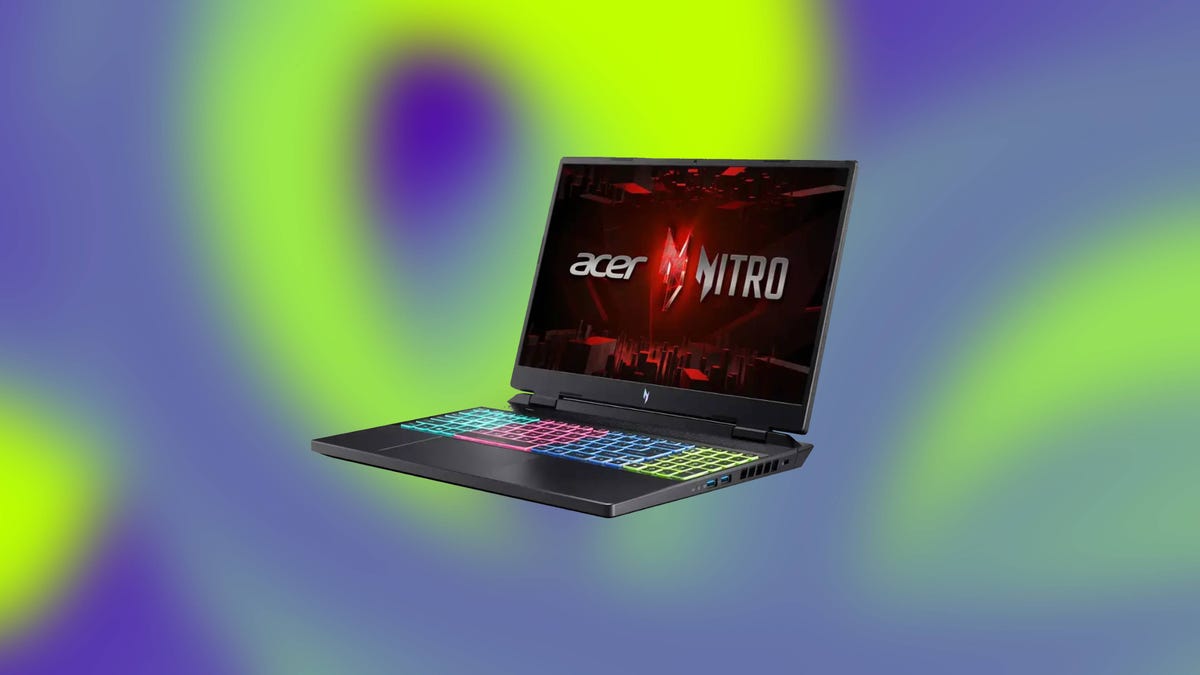Tech
Laptop Prices Increasing 10% Due to Tariffs, Acer CEO Says

The Impact of Trump’s Tariffs on US Consumers: Rising Prices for Electronics
The effects of the tariffs imposed by President Donald Trump on China are beginning to trickle down to U.S. consumers, particularly in the tech industry. Acer, a Taiwanese electronics manufacturer, has announced that it will raise the prices of its laptops by 10% in response to the tariffs. This move is part of a broader trend where electronics companies are passing on the cost of tariffs to consumers, leading to higher prices for a wide range of products, including smartphones, appliances, and gaming consoles. For everyday shoppers, this means that buying a new laptop, smartphone, or even a high-tech refrigerator could soon become more expensive.
Acer’s Decision to Raise Laptop Prices: A Direct Response to Tariffs
Jason Chen, CEO of Acer, confirmed that the company will implement a 10% price increase across its laptop range due to the tariffs. "We will have to adjust the end user price to reflect the tariff," Chen explained. "We think 10% probably will be the default price increase because of the import tax. It’s very straightforward." Acer, which ranks among the top five laptop manufacturers in the U.S. alongside Dell, Lenovo, and Apple, is one of the first major tech companies to explicitly outline how the tariffs will affect consumer prices. This move is expected to impact not just individual buyers but also educational institutions and businesses that rely on affordable laptops.
Shifting Supply Chains: Acer Considers Manufacturing in the US
In an effort to mitigate the effects of the tariffs, Acer is exploring alternative strategies, including shifting its supply chains and potentially establishing some manufacturing operations in the U.S. This shift could help the company avoid the tariffs imposed on goods imported from China. However, for now, consumers will still feel the pinch. The 10% price increase will apply to laptops shipped from China after February, although some models that were already on their way to the U.S. before the tariffs came into effect may be exempt from the hike. This temporary reprieve offers little consolation for shoppers who are already bracing for higher prices in the coming months.
The Broader Impact on the Tech Industry: More Than Just Laptops
The tariffs on Chinese goods are not just affecting laptops; they are having a ripple effect across the entire tech industry. From smartphones to gaming consoles and smart home devices, the cost of many electronics is expected to rise. The Consumer Technology Association has warned that U.S. consumers could face a $90 billion to $143 billion hit to their spending power due to the tariffs. While some tariffs on goods from Mexico and Canada have been paused, the reliance of the tech industry on Chinese manufacturing means that the impact of the tariffs on electronics will be particularly significant. This could lead to a slowdown in sales and innovation as companies struggle to absorb the additional costs.
Expert Insights: The Real-World Consequences for Consumers
Josh Goldman, a managing editor at CNET who specializes in PC and laptop reviews, notes that Acer’s decision to raise prices is not surprising, given the current trade climate. "Few, if any, of the major PC manufacturers make better affordable laptops than Acer," Goldman said. However, he also emphasized the real-world consequences for consumers. "Given the current situation, it’s not surprising that the tariffs will increase prices, but it will hurt average consumers like you and me, as well as education and commercial buyers who are already dealing with inflation and tight budgets." This sentiment is shared by many experts who predict that the tariffs will have a disproportionate impact on middle- and low-income families who rely on affordable electronics.
The Road Ahead: Navigating the Uncertain Landscape of Tariffs and Trade
As the trade tensions between the U.S. and China continue to evolve, consumers and businesses alike are left navigating an uncertain landscape. While companies like Acer explore new manufacturing strategies to reduce their reliance on Chinese imports, the immediate impact of the tariffs is unavoidable. For shoppers, this means being prepared for higher prices on a wide range of electronics. For the tech industry, it means finding creative solutions to mitigate the financial strain caused by the tariffs. As the situation unfolds, one thing is clear: the effects of the tariffs will be felt for years to come, shaping the way we buy, sell, and manufacture technology products.











